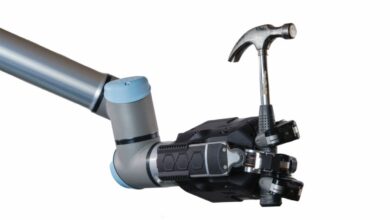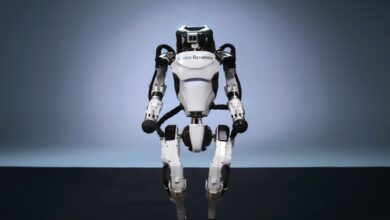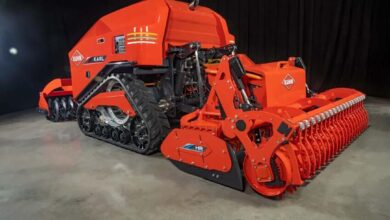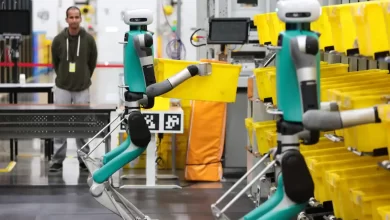Elon Musk Needs Robots, and He Needs Them Now
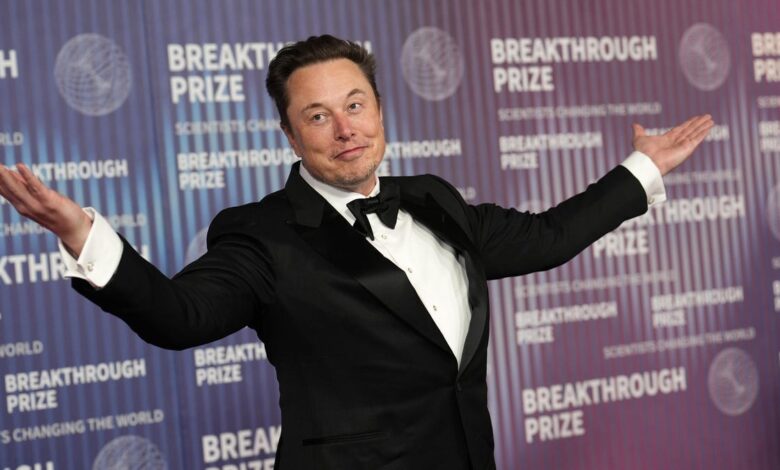
It’s a classic Elon Musk move. Tesla released some pretty grim first-quarter numbers on Tuesday, showing that net income dropped more than 50% from last year. During the earnings call, however, Musk floated his “new” vision for the electric car company. Tesla is now focused on building an AI-powered fleet of ride-hailing robotaxis, composed of new “Cybercabs” and existing autonomous cars that Tesla owners can send out at will.
“Think of it as a combination of Airbnb and Uber,” said Musk on Tesla’s earnings call Tuesday. “There will be some number of cars that Tesla owns itself and operates in the fleet, and then there’ll be a bunch of cars where they’re owned by the end user.”
When things are going south, Musk bets his companies on building what no one has before. Elon wants to build a robotaxi fleet so that Teslas spend as little time as possible sitting in a garage. Tesla owners will be able to opt their cars into a ride-hailing robotaxi program, that they presumably can make money from. Like Airbnb, owners can choose to only rent their car to users with good ratings, or just friends and family. Tesla will operate this fleet, according to Musk, which also includes a new dedicated robotaxi that will be showcased in August of this year.
If this sounds familiar, it’s because Musk has been talking about this fleet of robotaxis for years. Back in 2019, he said there would be more than a million of these autonomous cars picking up strangers in 2020. Yeah, that didn’t happen.
The robotaxis are still part of Musk’s vision for Tesla as an AI and robotics company. The CEO, often optimistic with his timelines, expects Tesla’s humanoid robot Optimus will be available for sale externally by 2025. Musk reiterated that, when launched, Optimus “will be more valuable than everything else combined.”
Tesla blames its lackluster performance in Q1 of 2024 on a variety of factors. In its quarterly update, management called out the Red Sea conflict, the arson attack at Gigafactory Berlin, and the gradual ramp of the updated Model 3 in Fremont. Broadly speaking, Tesla also noted the Global EV sales slump, as many American competitors pulled from the EV race in the last year.
Musk is betting the company on self-driving after a year of struggles for Tesla’s autonomous driving division. The California DMV sued Tesla this year for claiming its vehicles could fully drive themselves in marketing materials, though that’s not the case yet. Tesla recently issued over-the-air updates to vehicles to include a disclaimer that drivers still have to pay attention while using “autopilot” mode.
Musk also announced new, affordable Tesla models coming in early 2025. These cars will be built on existing manufacturing lines, which Tesla says will reduce the cost of building them. However, this raises a question of how different these cars will be from existing Teslas. Musk dodged an analyst’s question when asked to elaborate on these new vehicles.
“Elon Musk finally stepped up as the adult in the room and laid the foundation for Tesla’s growth strategy with most importantly a lower cost vehicle now slated for 2025 production and delivery,” said Wedbush Securities analyst Dan Ives in an analyst note Wednesday seen by Gizmodo.
Tesla’s stock soared Wednesday morning, up 14% as of 10:20 a.m. in New York, despite the lackluster performance in Q1. Investors were excited by the prospect of new, cheaper models supposedly going into production now, alongside Musk’s vision for an AI-enabled future. Not to mention, Tesla announced plans to lay off roughly 6,000 employees in Texas and California on Tuesday. That doesn’t hurt the stock price, though it may impact Tesla’s ability to execute these bold visions.
